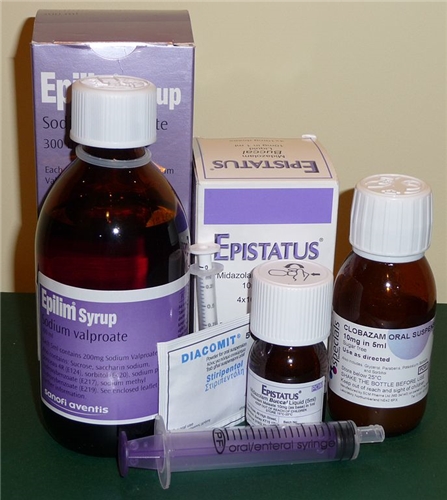Interactions between everything to do with thyroid (hormones, tests, etc.) and medicines has often been discussed here. I remember some specific mentions of the impact of anti-epileptics. This is just another abstract which identifies that there are potentially very significant interactions between anti-epileptics and thyroid.
Seizure. 2013 Sep 16. pii: S1059-1311(13)00253-7. doi: 10.1016/j.seizure.2013.09.006. [Epub ahead of print]
The effect of antiepileptic drugs on thyroid function in children.
Yılmaz U, Yılmaz TS, Akıncı G, Korkmaz HA, Tekgül H.
Source
Department of Pediatric Neurology, Dr. Behçet Uz Children's Hospital, Izmir, Turkey. Electronic address: drunsalyilmaz@yahoo.com.
Abstract
BACKGROUND:
Limited and conflicting data exist for the influence of antiepileptic drugs on thyroid function in children.
OBJECTIVE:
The aim of this study was to investigate the effects of phenobarbital, valproate, carbamazepine, oxcarbazepine, and levetiracetam monotherapy on thyroid function in daily clinical practice during a 12-month treatment period.
METHOD:
A total of 223 children (103 females and 120 males) with new onset and controlled epilepsy treated with valproate (n=129), phenobarbital (n=33), carbamazepine (n=36), oxcarbazepine (n=14), levetiracetam (n=11) were enrolled in the study. Serum free thyroxine (fT4) and thyroid-stimulating hormone (TSH) levels were measured before and at first, sixth and twelfth months of therapy.
RESULTS:
At baseline, average fT4 and TSH concentrations were not different between the drug groups. Valproate-treated patients had decreased fT4 and increased TSH levels at months 1, 6, and 12. Carbamazepine-treated patients had decreased fT4 levels at months 1, 6, and 12 and increased TSH levels at months 1, and 6. Phenobarbital-treated patients had decreased fT4 levels at months 1, and 6, and increased TSH levels at months 6 and 12. Oxcarbazepine-treated patients had decreased fT4 levels at month 1. Levetiracetam-treated patients showed no significant change of fT4 and TSH at any times. The frequency of subclinical hypothyroidism at month 12 was 28% in valproate, 21.4% in oxcarbazepine, 18.2% in phenobarbital, 13.9% in carbamazepine, and 0% in levetiracetam groups.
CONCLUSION:
Our data suggest that all antiepileptic drugs studied except levetiracetam had varying degrees of deleterious effects on thyroid function.
Copyright © 2013 British Epilepsy Association. Published by Elsevier Ltd. All rights reserved.
KEYWORDS:
AED, Antiepileptic drugs, Children, Subclinical hypothyroidism, TSH, Thyroid function, antiepileptic drug, fT4, free thyroxine, thyroid stimulating hormone
PMID:
24091037
[PubMed - as supplied by publisher]
Rod
Image: The anticonvulsant drugs sodium valproate, stiripentol, clobazam and midazolam. 29 October 2009 Author Colin


